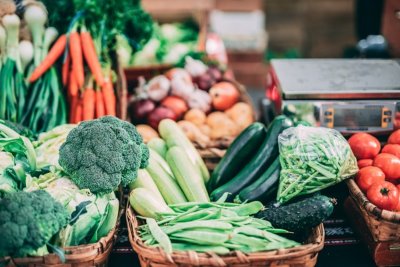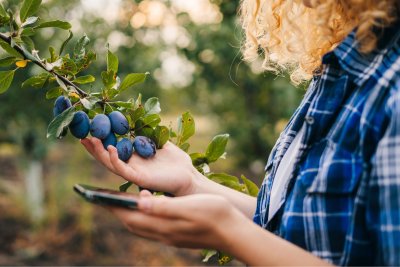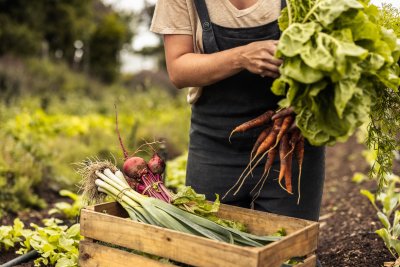These four countries also allow an antibiotic to be added to hormone growth-promoting implants given to cattle, to prevent infections at the implant site. The most widely used antibiotic in hormone implants is tylosin, which is classified by the WHO as a high-priority critically important antibiotic in human medicine because a very closely related antibiotic is one of the few medicines that works to treat serious human Campylobacter infections.
Cóilín Nunan of the Alliance to Save Our Antibiotics said: “Any new trade deals must not undermine British standards and threaten public health by allowing cheap meat and dairy produced with antibiotic growth promoters into the UK. It’s also particularly unacceptable that a high-priority critically important antibiotic is being used to control infections caused by hormone growth promotion.”
Most antibiotics used for growth promotion in these four countries are not used in human medicine. But one growth promoter used in the US, bacitracin, is classified as medically important by the World Health Organization (WHO). There is also scientific evidence that the use of bacitracin in livestock may increase levels of resistance to an antibiotic of last resort, called colistin, which is used to treat life-threatening infections in humans which do not respond other drugs.
The US also uses the antibiotic carbadox as a growth promoter in pigs, even though it is completely banned in Europe because it has been shown to be carcinogenic in some animals. US authorities are currently considering banning carbadox, but the American pig industry is opposing the move.
Several other antibiotics used as growth promoters in the US, Australia and New Zealand are no longer permitted to be used in British or European livestock in any form[1].
The new report shows that overall farm antibiotic use per animal is about five times higher in the US and Canada compared with the UK, with use in US cattle being about seven times higher. Antibiotic use per animal in Australian poultry is over 16 times higher than in the UK while in Australian pigs it is nearly three times higher, although use in Australian cattle and sheep appears to be low.
British farm antibiotic use fell by about 50% between 2014 and 2018, partly due to a variety of voluntary industry initiatives. Unfortunately recently published data for 2019 showed a 5% increase in use.[2]
Cóilín Nunan of the Alliance to Save Our Antibiotics said: “Farm antibiotic use is falling in Europe and in 2022 the EU will ban all preventative antibiotic mass medication in its livestock, which is a huge step forward. The UK government should commit to implementing the same ban, as relying on voluntary action is not a sustainable approach for the long term. It should also ensure that trade deals set high standards for imports to protect human health and avoid undercutting British standards.”
If more cheap meat is imported from these countries, UK farmers may come under commercial pressure and be tempted to increase their own antibiotic use in an attempt to minimise production costs.
Top stats/facts
The new report shows that:
- Antibiotic use per animal is about five times higher in the US and Canada compared with the UK, with use in US cattle being about seven times higher.
- Antibiotic use per animal in Australian poultry is over 16 times higher than in the UK while in Australian pigs it is nearly three times higher, although use in Australian cattle and sheep appears to be low.
- Most antibiotics used for growth promotion in these four countries are not used in human medicine. But one growth promoter used in the US, bacitracin, is classified as medically important by the World Health Organization (WHO). There is scientific evidence that the use of bacitracin in livestock may increase levels of resistance to an antibiotic of last resort, called colistin, which is used to treat life-threatening infections in humans which do not respond other drugs.
- The US uses the antibiotic growth promoter carbadox in pigs, a drug which is completely banned in Europe because it has been shown to be carcinogenic in some animals. US authorities are currently considering banning carbadox.
- Several antibiotics used as growth promoters in the US, Australia and New Zealand are no longer permitted to be used in British or European livestock in any form.
- British farm antibiotic use fell by about 50% between 2014 and 2018, partly due to a variety of voluntary industry initiatives. Unfortunately, recently published data for 2019 showed a 5% increase in use. European farm antibiotic use fell by 3% in 2018 and by 35% between 2011 and 2018.
- In the US, Canada, Australia and New Zealand, farm antibiotic use has increased according to the most recent data for each country.
Notes
- The US, Australia and New Zealand permit the use of the growth promoter bambermycin, an antibiotic banned from all use in EU livestock since 2006. Australia also allows the antibiotics olaquindox and avilamycin to be used as growth promoters. Olaquindox was banned from all use in livestock in the EU since 1999 partly because it is genotoxic and possibly mutagenic and avilamycin was banned in 2006.
- Australia has never licensed fluoroquinolone antibiotics for use in farm animals. Fluoroquinolones are high-priority critically important antibiotics in human medicine, and are still used in UK and EU farm animals.
Good Food Trade Campaign: Campaigning for good trade that benefits people and the planet at home and overseas.








